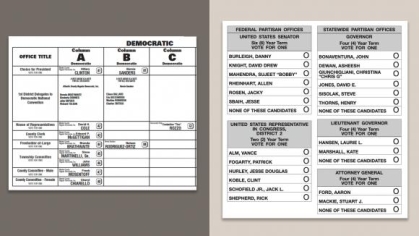Historic Case Striking Down Party Line on New Jersey Ballots Shaped by Rutgers Expertise

New Jersey’s voter ballots may look very different in the June primary as a result of a lawsuit brought by Rep. Andy Kim’s campaign for U.S. Senate. A federal court judge recently issued a preliminary injunction striking down the use of the party line that groups all candidates running together on the ballot rather than grouping them by office they seek as is done in the rest of the nation. The New Jersey ballot has drawn criticism from a growing grassroots movement because it isolates candidates not endorsed by political parties in a less prominent position – affecting their election chances.
A group of Rutgers experts, including alumni, were heavily involved in shaping the case that could transform politics in New Jersey. Julia Sass Rubin, a professor at the Edward J. Bloustein School of Planning and Public Policy, has conducted extensive research on the influence of the party line and served as an expert witness in the case. Attorneys on both sides attended Rutgers Law School including two members of Kim’s legal team, Yael Bromberg (who now teaches "Election Law and the Political Process" at Rutgers Law School) and Brett Pugach (both LAW’11). The third member of Kim’s team, Flavio L. Komuves, is a Rutgers College graduate who previously served as Deputy Public Advocate for New Jersey. Even U.S. District Judge Zahid Quraishi, who wrote the decision, is a Rutgers Law School graduate. (In fact, there are many more Rutgers Law connections to this case ranging from amici to advisors to counsel.)